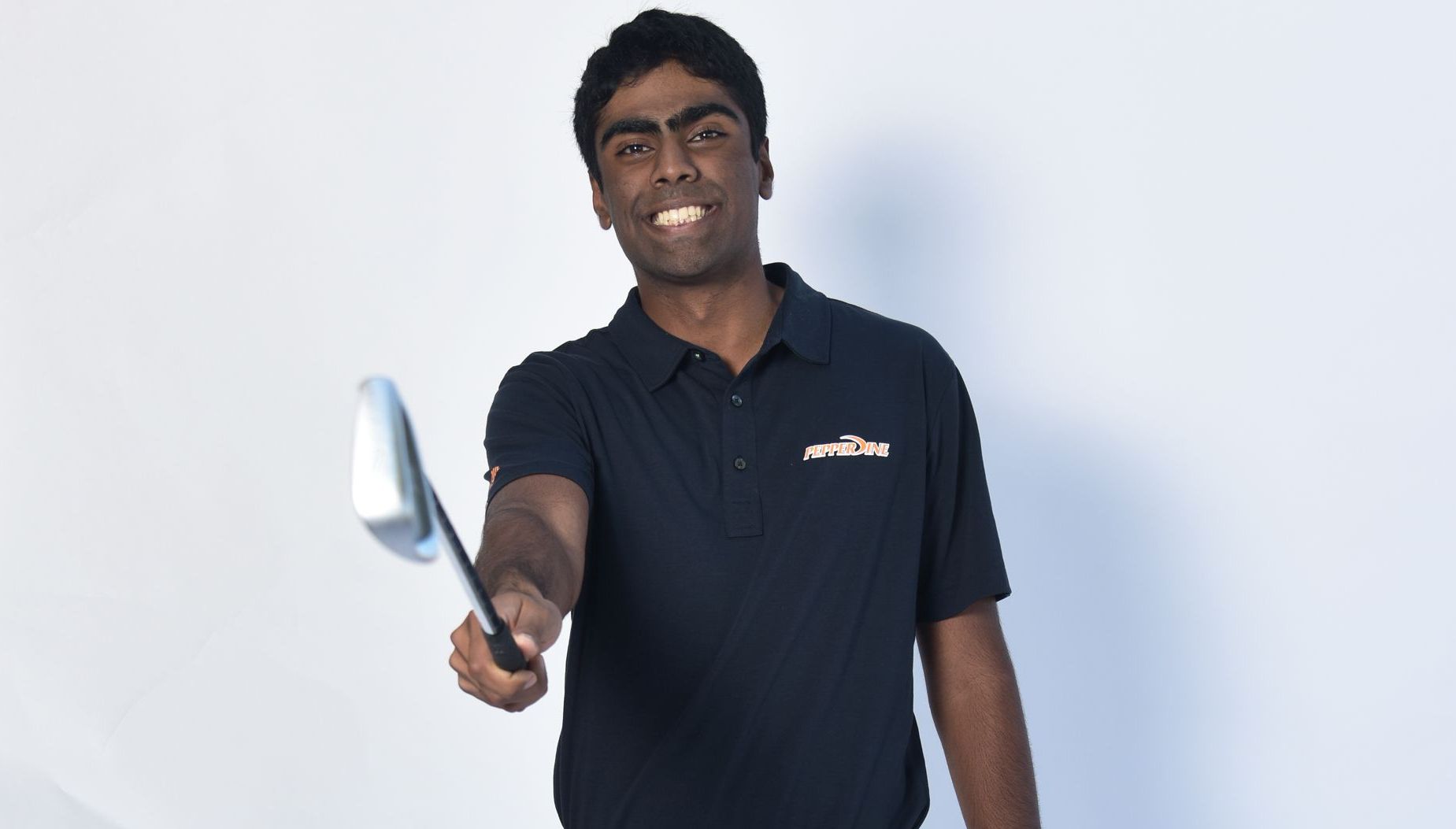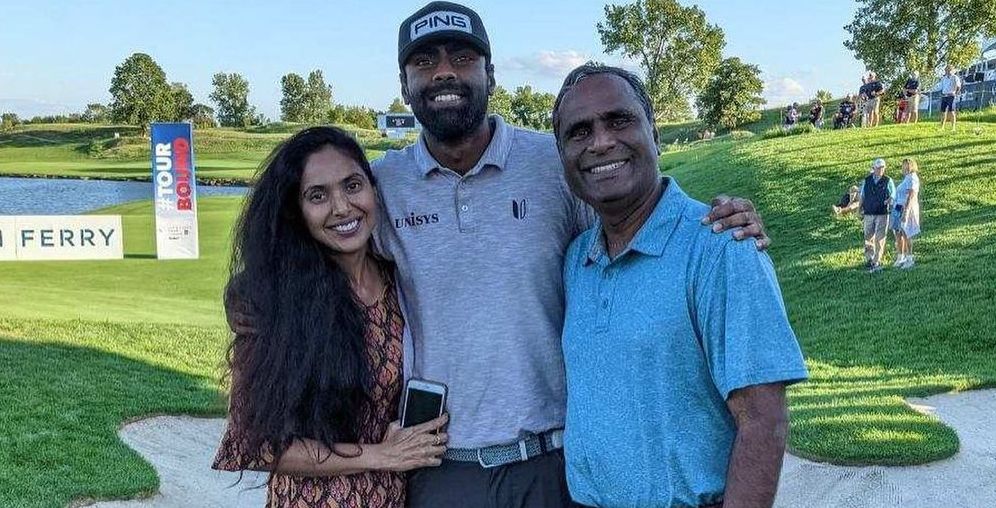It was a case of so near yet so far for Sahith Theegala at the Sanderson Farms Championship. For much of the tournament, he seemed destined for his first professional win. Unfortunately, he fell three shorts shy of eventual leader Sam Burns, with Sathith’s 19-under securing a career-high eighth place for the prodigiously talented Indian-American.
On happier news, Theegala secured his PGA Tour ticket for the 2021-2022 season in early September. He thanked his mother, father, and brother for supporting him as he pursued PGA Tour membership. “Not sure what I did to deserve such great people around me, but I feel the love,” Sahith wrote on Instagram.
Sahith faced racism as a young golfer due to his Indian heritage

Sahith’s father, Muralidhar Theegala, moved from India to the United States in 1987 for graduate school. He met fellow Indian immigrant Karuna Theegala, and together, they welcomed Sahith Theegala on 4th December 1997.
Muralidhar kept the family connected to its Indian heritage by traveling to India at least once every two years. In 2001, Karuna’s mother, Vijaya Laxmi, relocated to the United States to help raise Sahith and his brother as Karuna battled cancer.
Every year since 2001, Laxmi has spent six months a year with Sahith’s family. Therefore, despite Sahith growing up in California, he feels a strong connection to his Indian roots.
“I’m definitely very proud of my background and my Indian heritage,” Sahith told The New York Times. “But when I’m around my friends and other golfers, it’s not something that I think about.”
Sahith’s race almost became an impediment to his fast-rising golf career. His father’s attempt to get him into a private country club in Los Angeles failed due to the young golfer’s race. A representative of the club clearly stated that they were unwelcome at the club.
“Rather than saying, ‘Who are you?’ he just said, ‘You’re not supposed to here,’ Muralidhar told The New York Times. “He just assumed that because of the color of our skin.”
The setback didn’t slow Sahith’s development, but it highlighted the lack of diversity in golf. Tiger Woods’ success was predicted to spark a change in the white-dominated sport, but it did little to improve diversity.
Sahith hopes that his story can inspire minorities to take up golfing with ambitions of making it to the top. He said:
“In light of what’s going on, I’m proud of who I am and what I’m adding to the golf community in terms of diversity. Ultimately, we’re all trying to do the same thing in pro golf and that’s make a successful career. Hopefully there is some inspiration behind that, for people who watch me and realize that you don’t have to be a stereotypical white golfer.”
Sahith’s parents pushed him towards sports, but didn’t pressure him to succeed

Sahith started watching sports alongside his father when he was barely two years old. His first love was the Lakers; the young boy was inconsolable every time the Los Angeles team lost a game. Sahith developed an adoration for Lakers great Kobe Bryant as a young boy.
He donned Kobe Bryant’s jersey as he won the Southwestern Invitational two days after Kobe’s tragic death. Some of his Instagram posts feature the hashtag #mambamentality, showing that Kobe’s still an inspiration in Sahith’s life.
Sahith hit his first golf balls aged three, impressing Muralidhar with his natural ability. Theegala won the first tournament he participated in, the prestigious Junior Worlds in San Diego. He won the tournament two other times as he moved up in age groups.
Theegala signed up to many tournaments to gain experience on better courses. Private golf clubs refused to grant him admission, so he got in by participating in competitions. Sahith put in plenty of effort, which Muralidhar appreciated; however, Muralidhar reminded his son not to push himself too hard. Muralidhar told Fore Magazine:
“I told him, ‘Just keep playing your game. If you shoot 68 and lose, give credit to the other player. But if you shoot 68 playing your game all the time, that’s usually going to beat someone who occasionally shoots 62. Trust your game.”
Muralidhar doesn’t wish Sahith luck as he begins a tournament. “I say, ‘Have fun.’ Why would I say ‘Good luck?’” Muralidhar explained. “You already did your work on the range. Just have fun.”
Sahith was a multiple tournament winner when he made it to college but was woefully unrefined. He put clubs in the wrong places, had awful fashion sense, and had an awkward swing. However, refinement didn’t bother Sahith as he established himself as the best in the land. Muralidhar told The New York Times that Sahith will achieve greatness:
“I always believed that my boy is something special. Hopefully things work out, and by the grace of God, he’ll do wonderful. But I believe that he was born to do something great.”